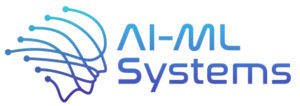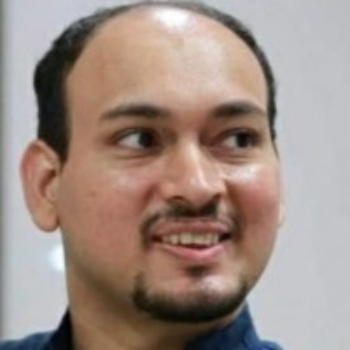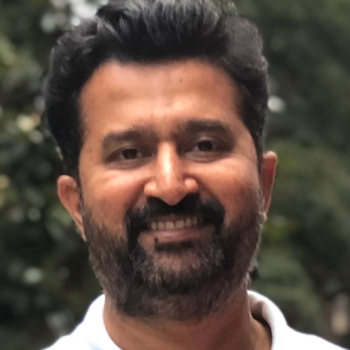Agentic AI for Software Engineering
Schedule
DATE: October 8, 2025
Venue: AIML Systems 2025
| Time | Event |
| 9:30 AM – 9:45 AM | Welcome |
| 9:45 AM – 11:00 AM | Keynote Speaker – Venkatesan Chakaravarthy (IBM Research) “Agentic frameworks for enterprise-scale software comprehension” |
| Tea / Coffee Break 11:00 AM – 11:30 AM | |
| 11:30 AM– 12:15 PM | Technical Paper Presentations 1. Directed Network Modeling with Generative AI for Driver Decision Support 2. AutoRAG-LoRA: Hallucination-Triggered Knowledge Retuning via Lightweight Adapters |
| 12:15 PM – 1:00 PM | Tutorial + Hands-on session “Zero to Production: Building Secure, ScalableMCP Servers and AI Agents with Open-Source Templates” Tuhin Sharma, Red Hat |
| Lunch Break 1:00 PM – 2:00 PM | |
| 2:00 PM – 3:00 PM | Keynote Speaker—Kuldeep Yadav, SHL “From Vision to Value: Design Patterns for Agentic AI in Production” |
| 3:00 PM – 3:20 PM | Technical Paper Presentations 2. Agentic Summarization of Large COBOL Programs Beyond LLM Context Limits Using Call Graph-Based Grouping |
| 3:20 PM – 4:00 PM | Invited speaker – Vijay Aski, Partner Director, AI Platform Microsoft |
| Tea / Coffee Break 4:00 PM – 4:30 PM | |
| 4:30 PM – 5:30 PM | Panel Discussion – “Agents in the real world”
|
Paper Submission Deadline: 7 August 2025, 11:59 pm AOE.
The recent past has seen significant progress in LLM-based agents automating many software-engineering tasks such as code generation, debugging, test-case generation, code reviews, and program repair. While agents for software engineering have shown a great deal of promise, considerable work is still required—particularly around reliability and correctness—before they can be adopted at enterprise scale. Equally critical are the systems-level challenges for running these agents in production, where strict service-level objectives for end-to-end latency, sustainable throughput, and cost efficiency must be met. The workshop will address both functional quality and non-functional performance guarantees, paving the way for robust, cost-aware, and scalable deployment of agentic solutions. This workshop will focus on the use of software agents across the entire software-development lifecycle.
Topics of Interest:
We solicit submissions describing original and unpublished results focussed on leveraging software agents for software engineering tasks. Topics of interest include but are not limited to:
1. Novel Applications of software agents in different stages of the software lifecycle.
2. Frameworks for building software agents.
3. Validation of code generated by software agents.
4. Novel metrics for benchmarking software agents.
5. Case studies of applying software agents for software development and maintenance.
6. Tools and techniques for tailoring software agents for specific code bases.
7. Productivity gains from software agents.
8. Security and Performance characteristics of code generated by software agents.
9. (Post) Training models for agentic tasks.
10. Architectures and optimizations for low-latency, high-throughput agentic pipelines.
11. Cost-aware scheduling, resource management, and scaling strategies for LLM-powered development agents.
- Palanivel Kodeswaran , Walmart
- Shruti Kunde, TCS Research
- Meera Radhakrishnan, University of Technology, Sydney
- Anshu Veda, Poshmark, USA
- Madhu Kumar, NIT Calicut
- Sayandeep Sen, IBM Research
- Atri Mandal, Oracle
- Venkat Chakravarthy, IBM Research
Submission Instructions
Papers should be at most 4 pages, including title, abstract, figures and results, but excluding references, and not published or under review elsewhere. Papers should be prepared as per IEEE conference proceedings format. Please submit your papers through Microsoft CMT.
All accepted workshop full papers will be included in the IEEE proceedings. At least one author of each accepted paper must register for the conference and present the paper. In addition, no-shows of accepted papers at the workshop will result in those papers NOT being included in the proceedings.
Keynote Speakers
Kuldeep Yadav
SHL, India
Title
From Vision to Value: Design Patterns for Agentic AI in Production
Bio
Kuldeep Yadav has extensive work experience across various roles and companies. He started his career as Senior Vice President of AI & Labs at SHL in 2020, where he focused on fair and equitable hiring through AI-powered assessments and platforms. Prior to this, he worked as the Director of SHL Labs and Director of AI at the same company.
Before joining SHL, he served as the Chief Technology Officer (CTO) and Founding Member & Head of AI at VideoKen from 2017 to 2020. At VideoKen, he utilized AI/ML techniques to enhance the consumption and engagement of informational videos. He also played a key role in the development of VideoKen’s patented technology and received the Nasscom AI Game Changer Award.
Throughout his career, he gained valuable experience through research internships at Nokia Research Center and Microsoft Research India. He also participated in the Microsoft Research India Summer School. His educational background includes a B.Tech in Computer Science and Engineering from Sikkim Manipal Institute of Technology (2005–2009) and a PhD in Computer Science (Mobile Computing) from Indraprastha Institute of Information Technology (IIIT), Delhi (2009–2013).
Venkatesan Chakaravarthy
Researcher at IBM India Research Lab
Title
Agentic frameworks for enterprise-scale software comprehension
Bio
Venkatesan Chakaravarthy received his PhD in Computer Science from the University of Wisconsin–Madison. He is a researcher at IBM Research—India, with prior studies at Anna University and IIT Chennai. His current research focuses on high-performance algorithms for tensor analysis and graph-theoretic problems, with broader interests in approximation algorithms and computational complexity theory.
Vijay Aski
Microsoft, USA
Title
Agentic AI at Scale: Unlocking Enterprise Innovation
Bio
Vijay Aski is Partner Director of Engineering at Microsoft, where he leads the AI Platform that powers Azure’s generative AI capabilities. He oversees engineering for the GenAI Model Training and Fine-Tuning Platform, Model Customization for AOAI and OSS Models, Foundry Model Catalog, and Speech and AI Services, delivering enterprise-ready solutions built on Azure OpenAI and open-source models.
Over his 20+ years at Microsoft, Vijay has built and scaled distributed systems that support multi-billion-dollar businesses. As Principal Group Engineering Manager, he drove core Bing Ads engineering, advancing campaign management, fraud detection, authentication, and disaster recovery systems for a $6B platform processing billions of daily transactions. Earlier, he played a key role in developing Microsoft’s System Center products, shipping multiple enterprise solutions.
With deep expertise in AI platforms, large-scale distributed systems, and enterprise cloud services, Vijay continues to shape Microsoft’s journey in defining the future of AI innovation for global customers.
Panel Discussion
Title : Agents in the real world
Coordinators:
- Niyati Chhaya (Hyperbots)
- Eshan Jain (Walmart)
- Kuldeep Yadav (SHL)
- Rekha Singhal (TCS)
Accepted Papers
1. Directed Network Modeling with Generative AI for Driver Decision Support
Yogesh Dhumal (MNR University, Hyderabad), Jaswanth Nidamanuri (MNR University, Hyderabad)
2. AutoRAG-LoRA: Hallucination-Triggered Knowledge Retuning via Lightweight Adapters
Kaushik Dwivedi (Birla Institute of Science Pilani, Pilani)
3. Unified AI-Driven Log Anomaly Detection and Adaptive Response System Integrating Threat Intelligence and Reinforcement Learning
Vijay kumar (BMS Institute of Technology and Management)
4. Agentic Summarization of Large COBOL Programs Beyond LLM Context Limits Using Call Graph- Based Grouping
Sourav Bhattacharyya (IBM India Pvt Ltd), Vasudev Chatterjee (IBM India Pvt Ltd), William Alexander ( IBM USA ), Ranjan Kumar ( IBM India Pvt Ltd )



